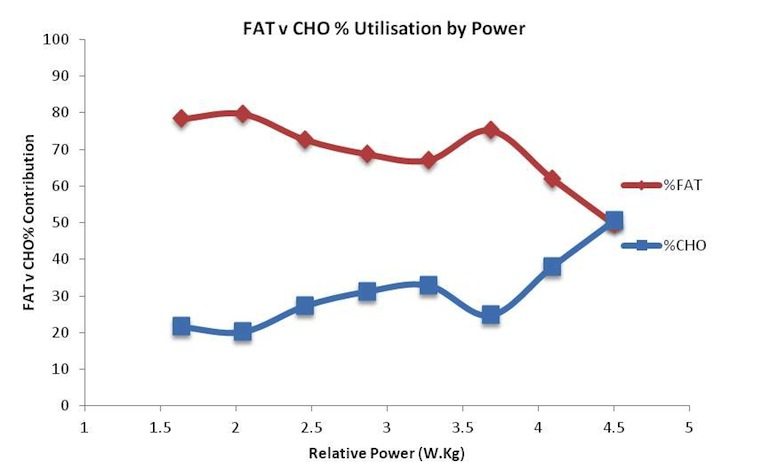
One of the most efficient ways of kick starting your fat burning metabolism and boosting your cycling fitness is to partake in fasted training. As I've talked about before, your body is designed to utilize the energy substrates that are available to it to meet energy demands. During fasted exercise, there’s a stark limit on the amount of sugar available. There is, however, a huge amount of energy available from fat stores, and you need to train your body to use it effectively.
Similar to how your body will adapt to exercise by getting fitter, your body will adapt to fasted training by increasing the amount of fat it can burn. Fasted training helps to adapt your body to the stresses of hard training and primes you for a “train low, compete high” scenario where you’ll teach your body to be stingy in burning carbs in your typical training but supply it more on race day to ensure it's properly fueled. This will not happen overnight, though. It will take months of work to increase the efficiency of your body’s fat burning machinery, and these fasted training tips will give you a significant edge in that quest.
As you start your fasted training protocols, keep in mind a couple of simple things:
- Always carry some food with you to prevent bonking (and be prepared to eat after an hour of hard riding)
- If you’re not feeling well or having an off day, skip the fasted training and eat something. You can always go back to it later in the week.
- Pay careful attention to your body: if you start to bonk badly or repeatedly, back down and rest a bit, and be sure to eat.
Bearing those “safety” concepts in mind, click through the jump to learn how to add fasted training to your cycling program.
Continue reading “Boost Cycling Fitness and Shred Fat with Fasted Training”
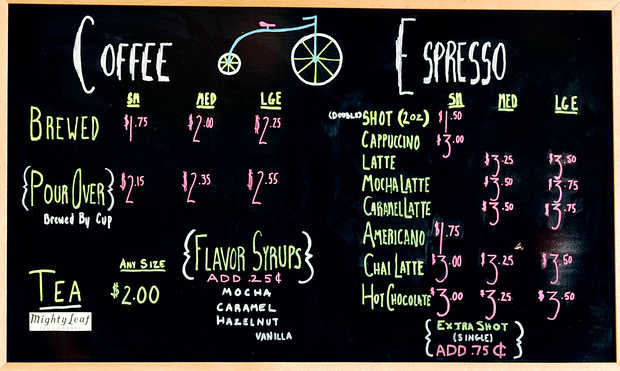
Is it possible that the quintessential coffee shop ride has more to do with performance than it does social togetherness? In some studies, it's been shown that the caffeine in a cup of coffee may be a difference maker in terms of performance while riding a bike. But some difference of opinion remains when discussing how soon after ingestion do the performance effects of caffeine actually take effect. When should you drink that espresso? When should you have that morning cup of coffee when you're going out for a training ride?
In this short Periscope videocast, I'll talk about the performance effects of caffeine on your cycling performance. I'll also touch on what is the optimal timing is for getting your caffeine fix and what the quickest method of getting your caffeine into your blood is. I'll also answer a couple of questions from listeners who were online at the time, giving you a couple of other tidbits on coffee and caffeine.
Don't forget to like/share and comment!
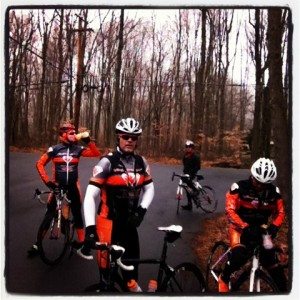 If you looked at the calendar recently and wondered where the “(Not so) off season” went, you're not alone. If you're starting to sweat your fitness level a little bit because you've been lacking motivation to get on the indoor trainer and hammer out some miles, you're DEFINITELY not alone. If you're thinking you have about 8 weeks until you should be riding with your buddies, racing or setting PRs in gran fondos, well, I'm right there with you.
If you looked at the calendar recently and wondered where the “(Not so) off season” went, you're not alone. If you're starting to sweat your fitness level a little bit because you've been lacking motivation to get on the indoor trainer and hammer out some miles, you're DEFINITELY not alone. If you're thinking you have about 8 weeks until you should be riding with your buddies, racing or setting PRs in gran fondos, well, I'm right there with you.
That's why I'm running a six week e-Bootcamp to kick your fitness up a notch or two.
Each week, you'll receive an email with your weekly training plan, some relevant tips to help you achieve the week's goals and my expert guidance. Here's what to expect:
- A 6 week training plan, delivered each week of the camp.
- Coaching support (just respond to your weekly email with questions)
- Nutritional advice, training physiology concepts, mental toughness tips, recovery advice, and more delivered each week.
How much? A few hundred dollars for 6 weeks of training plans, coaching support and training advice? How about $60? That's ten dollars per week.
Check out the e-Bootcamp information page for more detailed information.
There's no deadline, there's no catch. You can do a 6 week intensive bootcamp any time you want with this program.
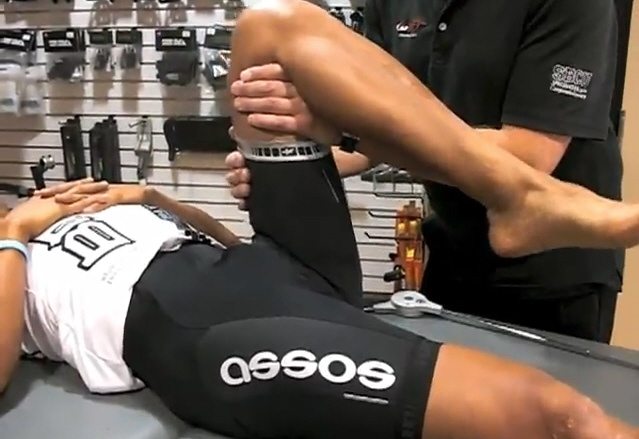
Have you ever heard that your body doesn't get stronger through training? It's an odd thing to think about, but it's inherently true. Training is the overloading stimulus that (hopefully) pushes your body beyond it's comfort zone. Once you've pushed beyond the constraints of your fitness you need to allow the body to repair the damage that has been done to it and build it stronger for the next challenge. But the recovery phase is something that many cyclists completely ignore, opting instead to sit on the sofa or worse, go for a recovery ride that turns into a workout.
In today's 50th episode of the Tailwind Coaching Podcast, I'll detail some of the do's and don'ts of recovery, including:
Continue reading “Recover Like A Pro (Podcast #50)”
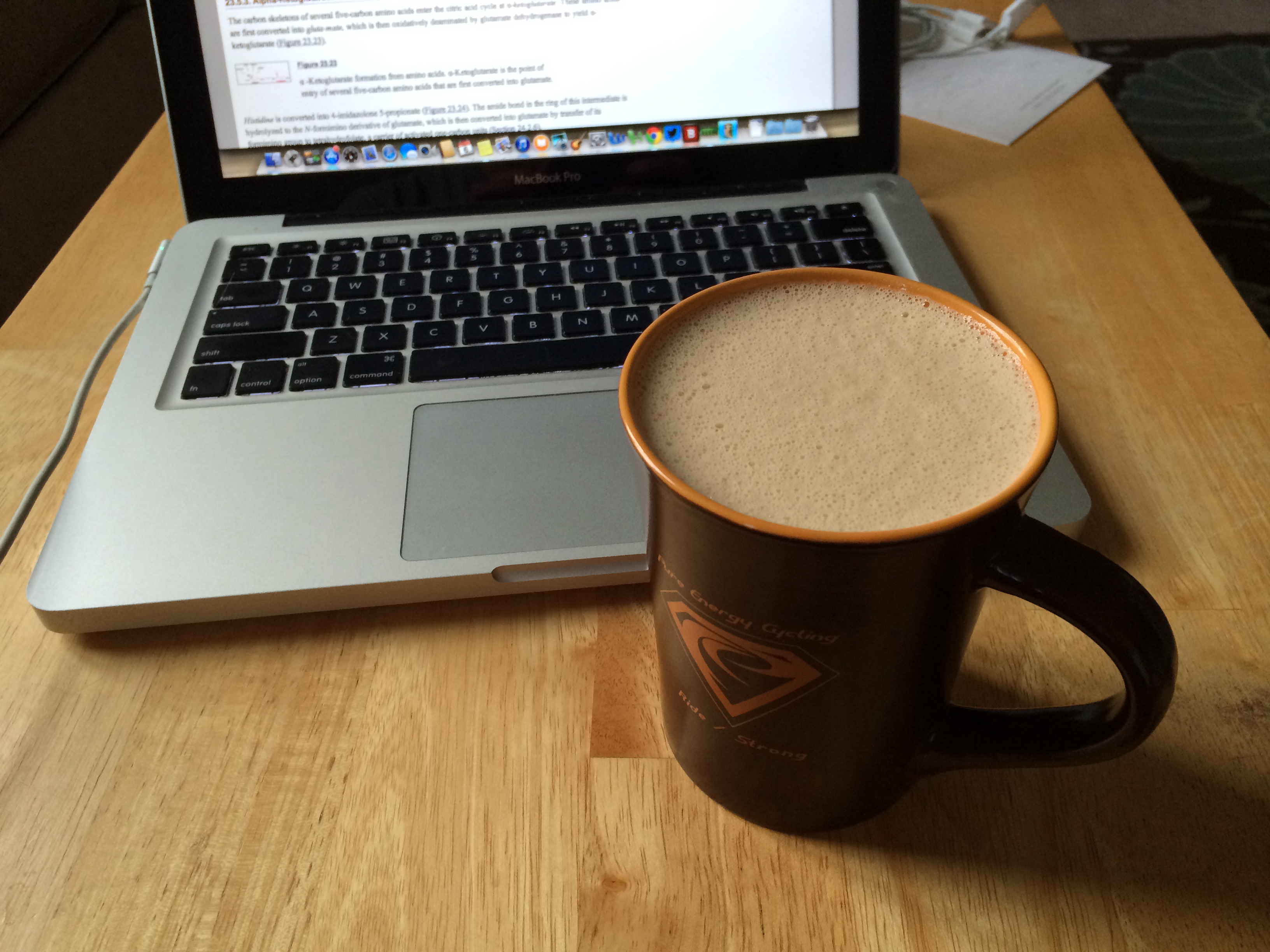
Getting fat. That's the last thing anyone wants to hear over the off season, especially during the holidays. The simple fact is that the holidays are notorious for being able to pack the pounds onto a cyclist. There are parties aplenty, goodies in the office (usually in the form of high-calorie desserts), feasts with family and the ever-present alcoholic beverage, just begging for you to imbibe.
It's easy to overdo it during the off season and find yourself in a hole come January. But there is a way to start melting off those excess inches that doesn't involve giving up tasty meals of spending hours per day on the trainer. And that simple way involves putting a little more fat in your gullet.
What?!
You heard me right. If you understand the physiology of how our body processes the fuel it is given, you'll be able to make some smart dietary choices. And if you stick with some of those changes for the long term, you'll realize some performance benefits as well.
In this episode of the Tailwind Coaching Podcast, I'll get into some of the science behind nutrition and exercise adaptation. You'll find the following information discussed in this episode:
Continue reading “Fat, Fasting and Training Adaptation (Podcast #49)”




